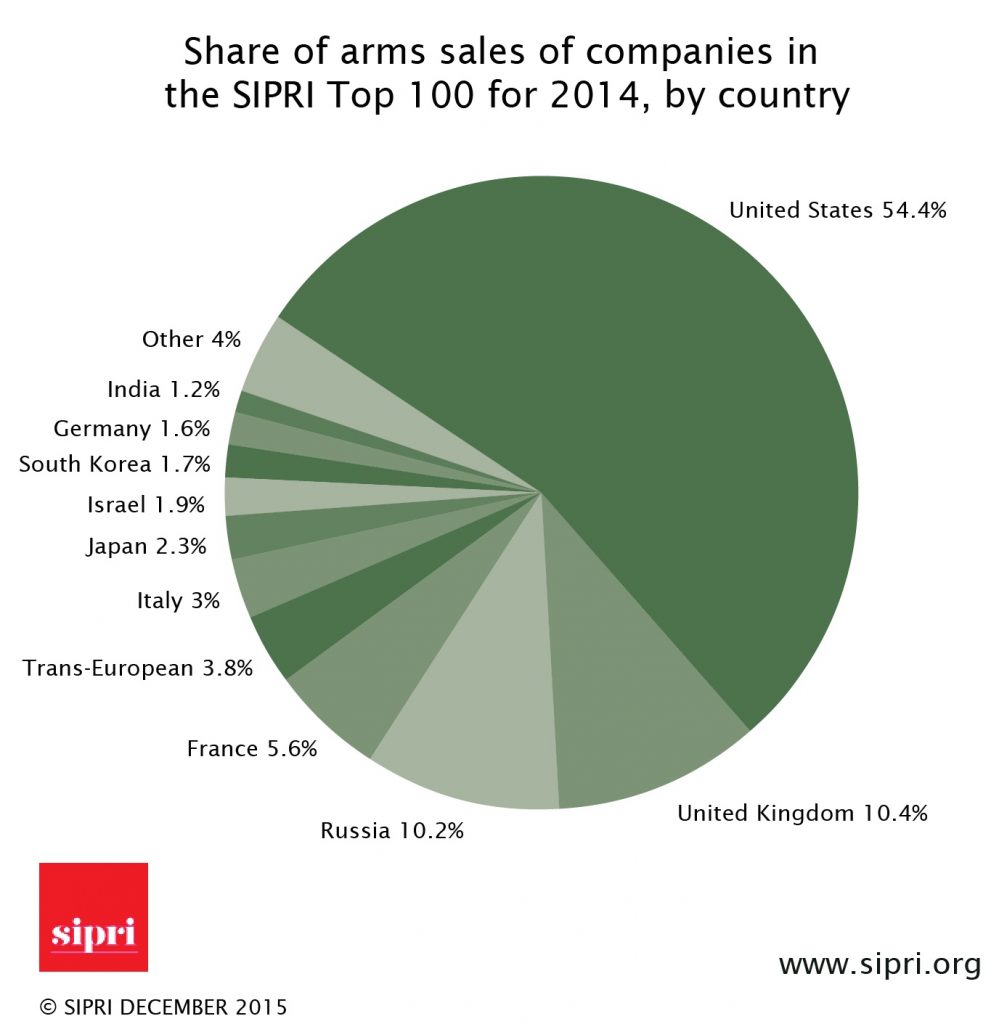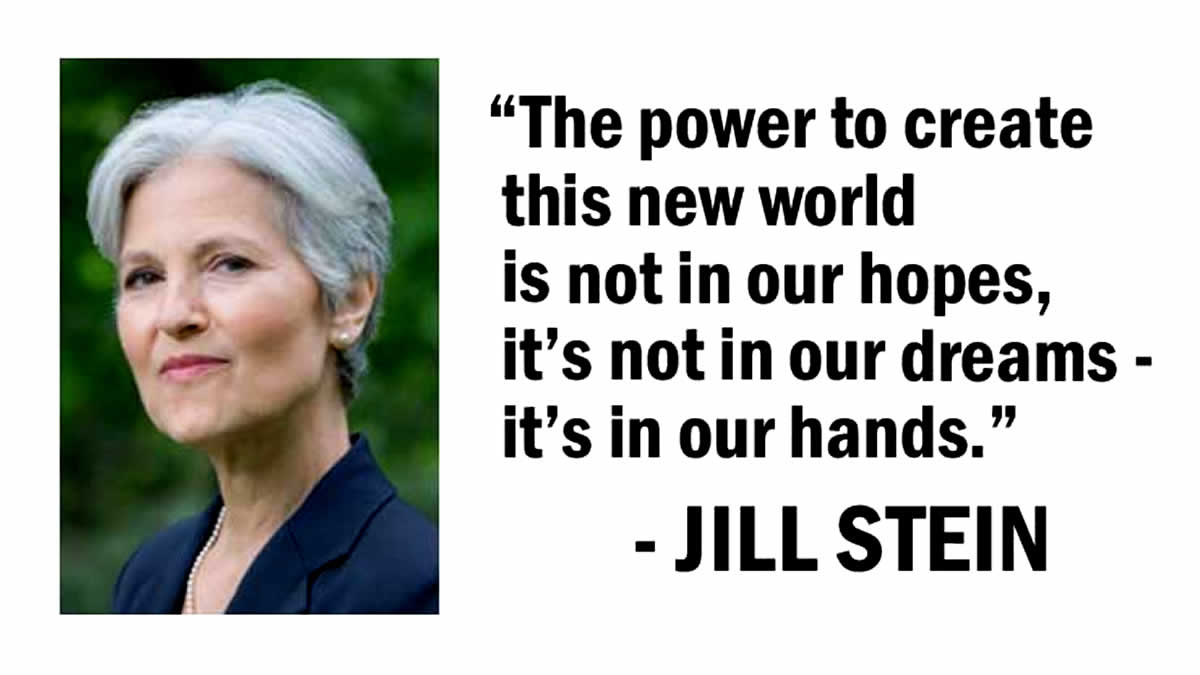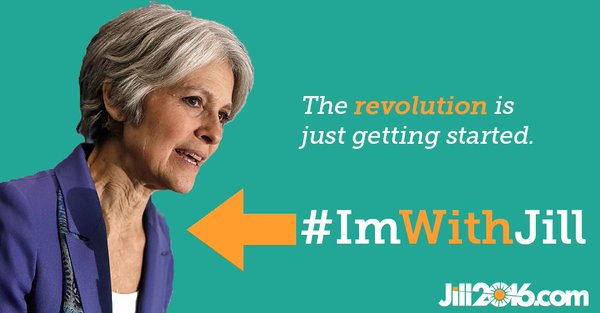 It seems that every time I look at a news media site, there’s yet another announcement of a giant arms deal between the U.S. and some foreign country.
It seems that every time I look at a news media site, there’s yet another announcement of a giant arms deal between the U.S. and some foreign country.
Maybe I should feel all aflutter that at least some things are still being manufactured in the U.S., instead of China or Bangladesh.
America is the main supplier of arms to the world. I don’t mean prosthetic arms.
Guns, bombs, bombers, fighter jets, ammunition, artillery, tanks, attack helicopters, attack and reconnaissance drones, rockets — you name it — just about every killing device and deadly combat technology, except nuclear weapons, is in the catalog. Last year our foreign sales of military equipment reached a record high of $46.6 billion!
Recognizing that making money and bolstering the economy are main drivers for most of our foreign policy decisions, I still can’t help but wonder why two obvious questions never get asked:
- As an allegedly Judeo-Christian nation, is this really the best way to honor those values we claim are the core of our beliefs? “Do unto others …” and “Thou shalt not kill …” are a couple phrases that immediately come to mind.
- Is flooding the world with weapons which may, given the apparent volatility of political loyalties, be ultimately pointed right back at us, really a very smart thing to do?
 I realize that these are secondary and tertiary considerations — if they ever come up at all — in the boardrooms of military companies and their mirrored think tanks, and the decision making forums of our government, where profit and raw power are more important than people’s lives, reducing and eliminating human suffering, or even embracing basic human decency.
I realize that these are secondary and tertiary considerations — if they ever come up at all — in the boardrooms of military companies and their mirrored think tanks, and the decision making forums of our government, where profit and raw power are more important than people’s lives, reducing and eliminating human suffering, or even embracing basic human decency.
But how can we claim to be advocates for a peaceful world if any Tom, Dick, or Abdul can arm their countries to the teeth by simply buying the ingenuity and efficacy of American killing machines, instruments of war, technological marvels that erase human life? Or do we even bother worrying about such inconsistencies anymore? Frankly, it doesn’t seem that in the raucous din of saber-rattling and incessant beating of war drums we now must endure 24/7/365, peace ever gets even passing mention by our congressional leaders or White House spokespersons.
It’s quite obvious to anyone not under the ideological spell of neocon lunacy . . .
The aggressive promotion of our war industries and pursuit of profit through arms deals is mind-bogglingly self-sabotaging, whatever the pecuniary rewards. It’s like pulling up with a truck full of assault weapons in downtown Cambden, NJ and selling them to anyone who forks over the bucks, hoping that all these folks will use good judgment and not cause any undue harm. It is an understatement to say this approach is patently stupid and suicidal!
President Obama himself, a man who was awarded the Nobel Peace Prize based purely on the rhetoric of his presidential campaign and speeches made in the first few months of his presidency, most notably his A New Beginning address to Muslim nations June 4, 2009 in Cairo, has outpaced George W. Bush with accelerated approvals of lethal weapons sales to foreign buyers, and has significantly relaxed or done away with altogether the regulatory framework intended to safeguard against those weapons getting into the wrong hands.
 To put this in perspective, President Obama has sold more armaments than any president since World War II, and thus we are daily treated to scenes in the media of all sides of a conflict blasting away at one another with high-end U.S. manufactured equipment. Much of it initially goes to legitimate, approved buyers but then gets stolen, captured, even intentionally passed along, so that terrorists groups who represent our worst nightmares, who are anti-American to the core and willing to do anything to destroy the “Great Satan” and supreme infidels we are judged by them to be, then are in a position to mount astonishingly successful military campaigns, conquer and control huge swaths of territory, forcing millions of refugees to flee to Europe and other areas of the globe, creating the worst such crisis in seven decades.
To put this in perspective, President Obama has sold more armaments than any president since World War II, and thus we are daily treated to scenes in the media of all sides of a conflict blasting away at one another with high-end U.S. manufactured equipment. Much of it initially goes to legitimate, approved buyers but then gets stolen, captured, even intentionally passed along, so that terrorists groups who represent our worst nightmares, who are anti-American to the core and willing to do anything to destroy the “Great Satan” and supreme infidels we are judged by them to be, then are in a position to mount astonishingly successful military campaigns, conquer and control huge swaths of territory, forcing millions of refugees to flee to Europe and other areas of the globe, creating the worst such crisis in seven decades.
Many political analysts on the left — ones I happen to agree with — say this is all actually entirely preplanned and deliberate, that the U.S. has mutated into the Empire of Chaos, one maintaining its supremacy as the world’s only remaining superpower by seeding and feeding disarray and destruction. This is entirely consistent with the Wolfowitz Doctrine, a landmark policy embedded in Defense Planning Guidance recommendations issued in 1992. This paradigm-shifting proposal in short order established the tone and substance for America’s application of power over the subsequent two-and-a-half decades:
Our first objective is to prevent the re-emergence of a new rival, either on the territory of the former Soviet Union or elsewhere, that poses a threat on the order of that posed formerly by the Soviet Union. This is a dominant consideration underlying the new regional defense strategy and requires that we endeavor to prevent any hostile power from dominating a region whose resources would, under consolidated control, be sufficient to generate global power.
So America is to reign supreme and anyone who appears to threaten that arrangement will have to be dealt with accordingly. Even the slightest challenge can trigger overwhelming opposition by the U.S. The list of countries bombed into submission, functionally erased as nations, or whose leadership has been replaced by regime change if formidable and still growing.
Except for its confrontation with the Soviet Union during the five decades of the Cold War, the U.S. has typically limited itself to smaller, more easily bullied countries — Afghanistan, Iraq, Vietnam, Libya. Despite its abysmal record of both military and diplomatic failure in almost all of its interventions, America’s recklessness and hubris continues to escalate, as this cycle’s presidential candidates, divorced from the realities on the ground, competed in bluster and bombast, promising bigger and badder explosions and wars. No country, large or small, is to be given a pass. For example, Russia and China just recently were identified as major national security threats. They are now prime targets for either military action or chaos and crippling by whatever means the U.S. chooses to enlist. Of course, neither has attacked nor shown any intention of attacking America. BUT they are both growing more powerful and have proven unwilling to play a submissive vassal state role, determined to meet their own needs and national priorities. And even more horrifying in the view of the hegemonic America-first neocons, Russia and China are now cooperating on many fronts and appear to be entering into a full-on military and economic alliance, inviting countries from the rest of the world who are fed up with Washington’s imperialism and truculence.
Not only Russia and China are in the cross hairs. It seems on a more perspicuous analysis that the Wolfowitz Doctrine applies not just to hostile powers, but any power, as the U.S. manipulates and bullies even its allies to exclusively serve American interests. Recently, we’ve seen aggressive interference by the U.S. to prevent any pursuit of independence by EU/NATO countries. Japan, of course, has been under America’s thumb for seventy years, and despite some grumbling from Japanese citizenry, has remained a good lapdog for the Empire. With Obama’s “pivot to Asia”, which is built on intensified deployment of military assets in the region, while stirring up longstanding rivalries among the Asian countries, divide-and-conquer is alive and well. Though the Chinese have a longstanding history of non-aggression and have made it clear they would rather work out any disputes at a conference table rather than on the battlefield, it is now the primary boogeyman.
For our “friends” often much of this meddling and manipulation comes down to money. It’s such a win-win situation — unless, of course, you happen to be an American citizen. The U.S. guarantees the security of other nations against both real and imagined threats, and foots the bill for much of the military equipment and deployment of U.S. troops. The countries are effectively subsidized for being an American protectorate, quite generously so. Pax Americana gets to be king of the mountain. You and I foot the bill. The defense industries pocket the profits.
All I can say is this: What a colossal waste!
What a waste of our tax money. What a waste of our leadership role in the world. What a waste of our generosity. What a waste of our resources. What a waste of the energy that once went into building a great nation and maintaining a functioning society.
Environmentalist Bill McKibben, activist Naomi Klein, Green Party presidential candidate Jill Stein, and countless others have proposed that America immediately take the lead in creating a green energy world. We can still make a buck — billions and billions of them, far more than we make on weapons of war — manufacturing and selling the necessary equipment and technology, and providing training and infrastructure for a global green energy revolution.
Is it so far-fetched to imagine a world covered with wind turbines and solar panels, instead of missile launchers and tanks? Is it so extreme or quixotic to want to transform the surface of the planet into a vast sustainable community instead of a killing field?
Where would you have America invest its vast economic resources and wealth? Creating a harmonious future and habitable planet, or promoting chaos, death, destruction, and the inevitable collapse of civilization?


















The Hands-Down Ultimate Super-Bowl of Showdowns!
Here it is!
The one you’ve been waiting for.
It’s going to be the battle of the ages!
Nothing like this has ever occurred in the history of the world.
Yes, folks . . . it’s a showdown that will reverberate till the end of time!
No, they’ll never stop talking about this head-to-head clash of the greatest titans EVER!
Are you ready to rumble?!!
Have you got your seat belts fastened?
Are you wearing your rubber diapers?
In this corner, coming off two decades of undefeated combat with environmentalists and eco-scientists, teary-eyed tree huggers, Al Gore, and other addled acolytes of Gaia . . .
CLIMATE CHANGE!
And its opponent, veteran of decades of terror struck into the hearts of citizens across the globe, a warrior whose very name evokes visions of untold horror and suffering . . .
NUCLEAR WAR!
Which one will exit the battle triumphant, its opponent curled up in a fetal ball, savaged, humiliated, beaten by the overwhelming power and pitiless cunning of brutal competition?
Remember . . . This is a fight to the finish!
This is serious business, ladies and gentlemen! As in . . . DEAD SERIOUS!
Only one of these ferocious fighters will lay claim to the ULTIMATE TITLE, and be able to say with the blood lust pride of a true warrior, a barbarian who embraces no moderation, a heartless amoral killer who knows no rules, feels no compassion, and has no conscience:
“It was I who destroyed the human race!”
Will it be Climate Change turning the Earth into an uninhabitable pile of dust, dead fields of dried withered stalks, rotting corpses, extinct species, desiccating trees and shrubs — a barren wasteland where cockroaches frantically skitter looking for something to eat?
Or will it be Nuclear War turning the Earth into a radioactive pile of dust, dead fields of dried withered stalks, rotting corpses, extinct species, desiccating trees and shrubs — a barren wasteland where cockroaches frantically skitter looking for something to eat?
OH YEAH, BABY! This is going to be truly awesome!
So stay tuned, folks. Watch this battle AS IF YOUR LIFE DEPENDED ON IT!
And remember. You can only get it here, exclusively on . . .
The Apocalypse Channel!